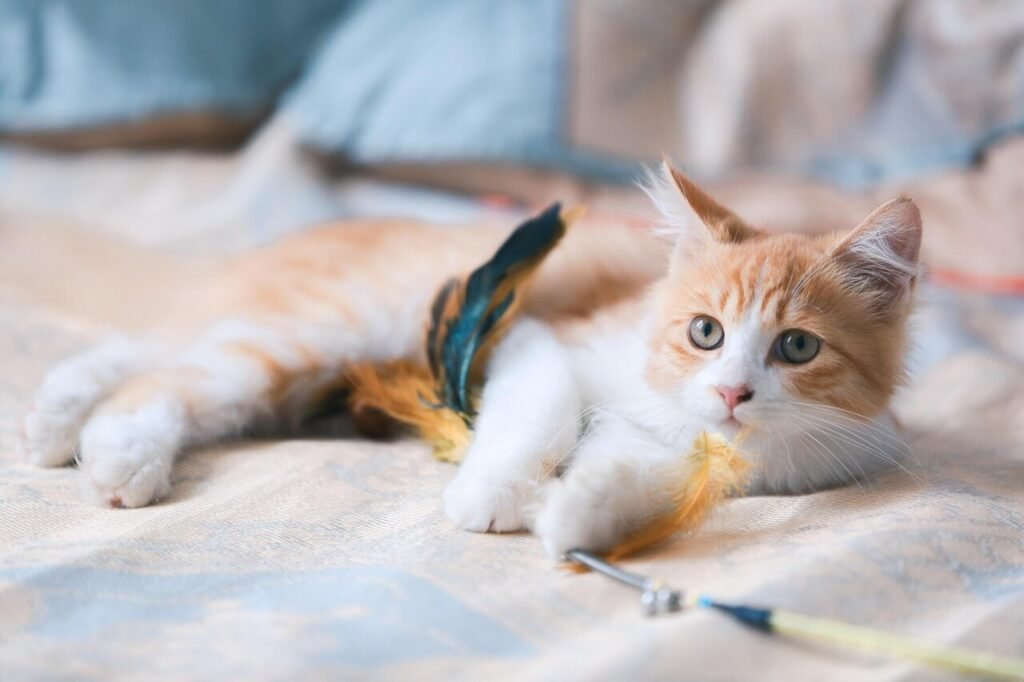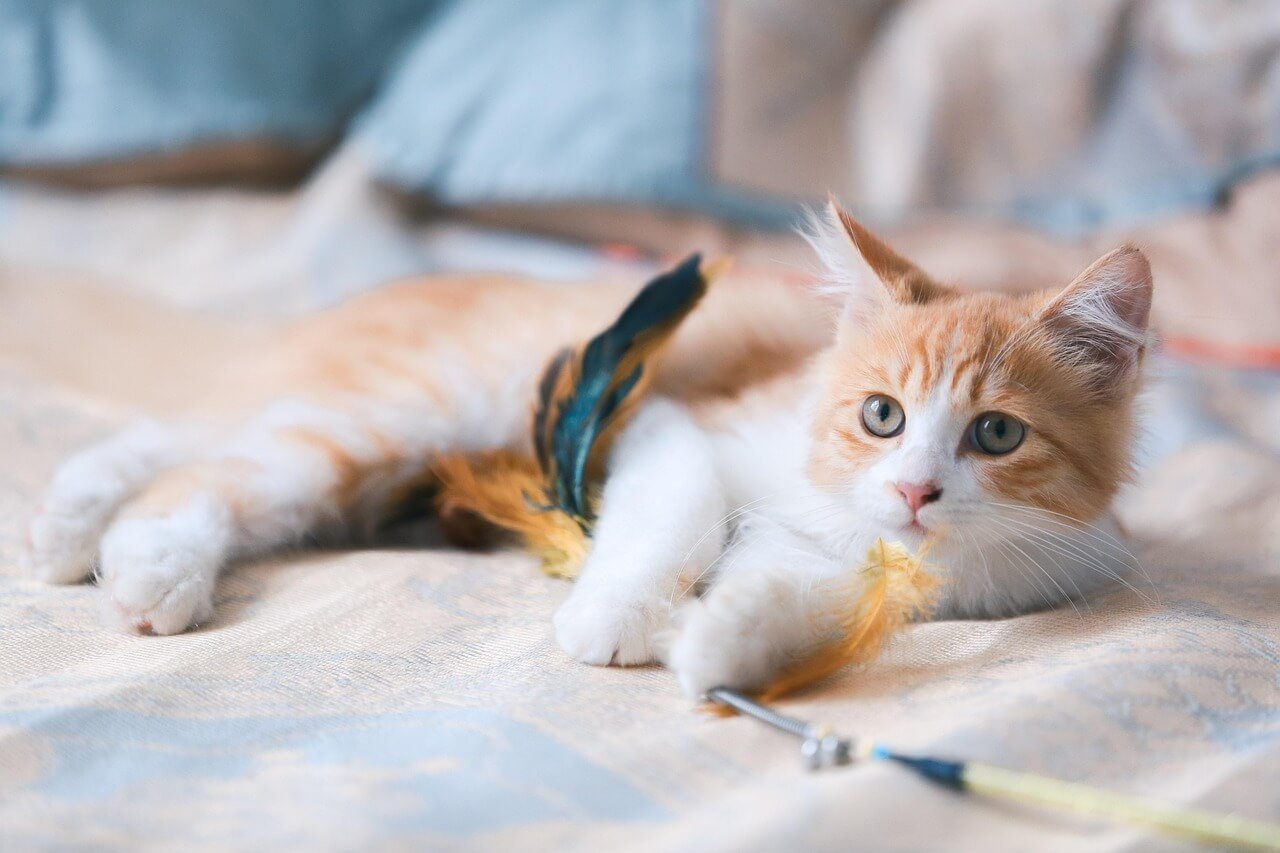Why Do Cat Scratches Itch? Understanding the Causes and Solutions
If you’ve ever been scratched by a cat, you may have noticed that the area often becomes itchy, red, or even inflamed. While cat scratches are common—especially for pet owners—the itching sensation can be uncomfortable and sometimes alarming. But why do cat scratches itch in the first place? The answer lies in a combination of factors, including your body’s immune response, bacteria present on a cat’s claws, and how you care for the wound afterward. In this guide, we’ll explore the science behind the itching, how to treat cat scratches effectively, and what steps you can take to prevent infections. With the right knowledge, you can keep both yourself and your feline friend safe and healthy.
Why Do Cat Scratches Itch? Key Factors Explained
The itching sensation from a cat scratch is not just random—it’s your body’s way of responding to various triggers. Here are some key reasons why cat scratches tend to itch:
Bacterial Infection : A cat’s claws can harbor bacteria like Pasteurella multocida , which may enter the skin and cause irritation or infection.
Immune System Response : Your body reacts to foreign substances introduced by the scratch, triggering inflammation and itching as part of the healing process.
Histamine Release : When the skin is damaged, your immune system releases histamines, which can lead to itching and swelling.
Allergic Reaction : Some people may have mild allergic reactions to proteins found in a cat’s saliva or skin cells transferred via their claws.
Dry or Damaged Skin : Scratches can strip away moisture from the skin, leaving it dry and more prone to itching.
Understanding these causes helps explain why cat scratches itch and highlights the importance of proper wound care.
Signs That a Cat Scratch May Need Medical Attention
While most cat scratches heal without complications, some cases require professional medical attention. Here are signs that indicate your scratch may need further evaluation:
Persistent Redness or Swelling : If the area around the scratch remains inflamed for more than a day or two, it could signal an infection.
Pus or Discharge : Oozing liquid or pus indicates the presence of bacteria and requires treatment.
Fever or Chills : These systemic symptoms suggest the infection may be spreading beyond the scratch site.
Increasing Pain : If the scratch becomes increasingly painful instead of improving, it’s time to see a doctor.
Delayed Healing : Wounds that don’t show signs of improvement within a week may need additional care.
Recognizing these warning signs ensures you address potential complications early and avoid serious health risks.
Check this guide 👉Understanding Cat Scratch Scars: Best 7 Health Tips!
Check this guide 👉Why is My Cat Scratching the Wall? Best 7 Health Tips!

Preventive Measures for Cat Scratches | Steps to Treat a Cat Scratch |
|---|---|
Trim your cat’s nails regularly | Wash the scratch with soap and water immediately |
Avoid rough play with unfamiliar cats | Apply an antiseptic ointment to reduce infection risk |
Keep your cat’s paws clean | Cover the scratch with a sterile bandage if necessary |
Supervise interactions between cats and kids | Monitor the wound for signs of infection daily |
Vaccinate your cat against diseases | Consult a doctor if symptoms worsen or persist |
How to Properly Clean and Care for a Cat Scratch
Taking immediate action after a cat scratch is crucial for preventing infection and reducing discomfort. Follow these steps to ensure proper care:
Wash the Area Thoroughly : Use warm water and mild soap to clean the scratch, removing dirt and bacteria.
Apply Antiseptic : Use an over-the-counter antiseptic solution or cream to disinfect the wound.
Pat Dry Gently : Avoid rubbing the area; instead, pat it dry with a clean towel to prevent further irritation.
Bandage if Necessary : For deeper scratches, cover the area with a sterile bandage to protect it from germs.
Monitor for Symptoms : Keep an eye on the scratch for any signs of worsening redness, swelling, or pain.
By following these steps, you can promote faster healing and minimize the risk of complications.
Tips to Minimize Itching After a Cat Scratch
Dealing with the itchiness caused by a cat scratch can be frustrating, but there are ways to alleviate the discomfort. Here are some tips to help you manage the itching:
Use Over-the-Counter Creams : Hydrocortisone creams or anti-itch lotions can soothe irritated skin.
Apply a Cold Compress : A cold compress reduces inflammation and numbs the area temporarily, providing relief.
Avoid Scratching the Wound : Scratching can worsen irritation and increase the risk of infection.
Moisturize the Area : Use a gentle, fragrance-free moisturizer to combat dryness and reduce itchiness.
Take an Antihistamine : If the itching persists, consider taking an over-the-counter antihistamine to calm the immune response.
These strategies can help you manage the discomfort while allowing the scratch to heal properly.
Proactive Steps to Avoid Getting Scratched by Your Cat
Preventing cat scratches is often easier than dealing with them afterward. By taking a few simple precautions, you can minimize the risk of scratches and keep interactions safe for both you and your cat.
Trim Your Cat’s Nails Regularly : Keeping your cat’s claws short reduces the likelihood of deep scratches during play or handling.
Provide Scratching Posts : Offering designated scratching surfaces satisfies your cat’s natural urge to scratch and keeps their claws healthy.
Teach Gentle Play : Discourage rough play behaviors like biting or swatting by using toys instead of hands during playtime.
Recognize Warning Signs : Learn to identify when your cat is stressed or overstimulated, such as flattened ears or twitching tails, to avoid triggering defensive scratching.
Supervise Children Around Cats : Teach kids how to interact gently with cats to prevent accidental scratches.
By implementing these strategies, you can create a safer environment for both yourself and your feline companion.
What You Need to Know About This Rare but Serious Condition
Cat scratch disease, caused by the bacterium Bartonella henselae , is a potential complication of untreated cat scratches. While rare, it’s important to be aware of its symptoms and risks.
Transmission via Fleas : The bacteria are often transmitted through flea bites or when a cat licks an open wound before scratching.
Common Symptoms : Include swollen lymph nodes near the scratch site, fatigue, fever, and sometimes a rash.
Higher Risk for Immunocompromised Individuals : People with weakened immune systems are more vulnerable to severe complications.
Diagnosis Through Blood Tests : Doctors may order specific tests to confirm the presence of Bartonella bacteria.
Treatment with Antibiotics : Most cases resolve on their own, but antibiotics may be prescribed for severe infections.
Understanding cat scratch disease helps you stay vigilant and seek medical attention if necessary.
Gentle Alternatives to Alleviate Discomfort from Scratches
If you prefer natural remedies, there are several options to soothe itching and promote healing after a cat scratch. Here are some gentle solutions to try:
Aloe Vera Gel : Known for its anti-inflammatory properties, pure aloe vera can calm irritated skin and reduce redness.
Coconut Oil : This natural moisturizer has antibacterial properties that help protect the wound while soothing itchiness.
Oatmeal Paste : Applying a paste made from ground oats and water can relieve itching and irritation effectively.
Chamomile Tea Compress : Steep chamomile tea bags in hot water, cool them, and apply as a compress to reduce inflammation.
Witch Hazel : A natural astringent that can clean the scratch and provide temporary relief from itching.
These natural remedies offer safe and accessible ways to manage minor discomfort while supporting the healing process.
Frequently Asked Questions About Cat Scratches
Can cat scratches cause serious infections?
Yes, untreated scratches can lead to infections like cellulitis or, in rare cases, cat-scratch disease (caused by Bartonella henselae ).
Should I let my cat lick my scratch?
No, a cat’s mouth contains bacteria that can worsen the wound; always clean the scratch thoroughly instead.
How long does it take for a cat scratch to heal?
Most scratches heal within 7–10 days with proper care, but infected wounds may take longer.
Is it normal for a cat scratch to itch?
Yes, itching is a common reaction due to histamine release and the body’s healing process.
Can I use hydrogen peroxide on a cat scratch?
While hydrogen peroxide can disinfect, it may also damage healthy tissue; saline or mild antiseptics are safer options.
Stay Prepared and Informed to Handle Cat Scratches Safely
Cat scratches are a common occurrence for many pet owners, but understanding why they itch and how to care for them makes all the difference. By practicing preventive measures, addressing wounds promptly, and monitoring for signs of infection, you can protect both yourself and your furry companion. Remember, a little knowledge goes a long way in ensuring that minor scratches don’t turn into major problems. With the right approach, you can enjoy a happy, healthy relationship with your cat while staying prepared for life’s occasional scratches.
Do Cats Have Taste Buds? Best 7 Expert Tips! – Discover how cats experience flavors and why their taste is so unique.
Do Dogs Have Taste Buds? Best 7 Expert Tips! – Discover how dogs experience taste, their preferences, and what it means for their diet and health.
Can Cats Taste Sweet? Best 7 Expert Tips! – Discover why cats can’t taste sweetness, how it affects their diet, and tips to keep them healthy and happy.
Can Dogs Taste Sweet? Best 7 Expert Tips! – Discover how dogs perceive sweetness, which foods are safe, and tips to manage their sweet cravings responsibly.





